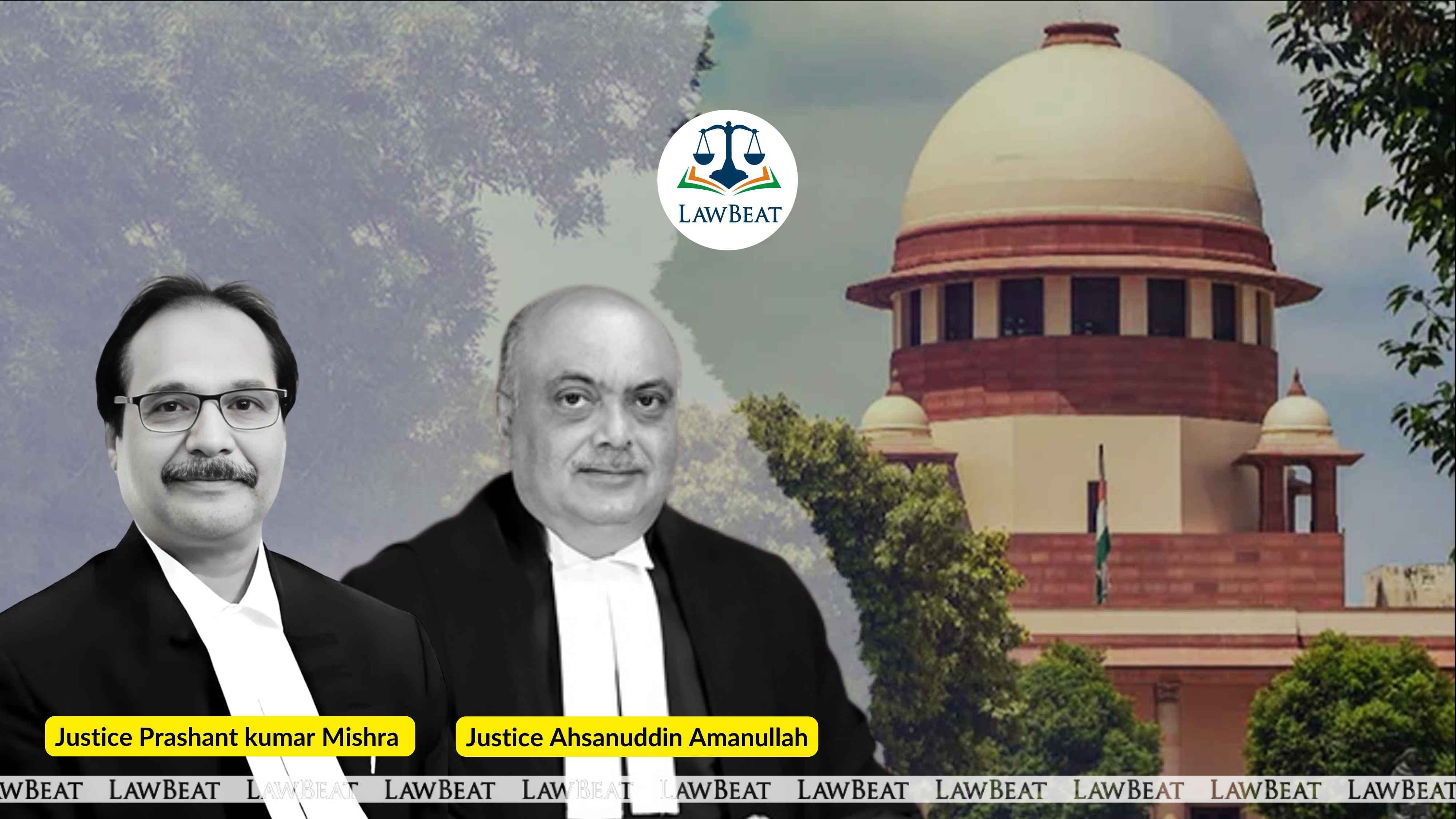SIT’s Failure to Find Evidence Doesn’t Bar Court from Summoning Accused Under Section 319 CrPC: Supreme Court

Taking a serious view of non appearance by Punjab counsel, the bench said, "the State should not forget that in criminal matters, it acts as investigator and prosecutor and must be available to assist the courts when called upon so to do"
The Supreme Court has said that the absence of evidence against an accused, as determined by the investigating agency, does not limit the trial court's authority to summon the accused under Section 319 of the Criminal Procedure Code.
Court allowed a plea against the Punjab and Haryana High Court's judgment which quashed summons issued against private respondents in a case of murder of a Sarpanch, saying indubitably, while an innocent person should not be punished, no guilty person should go scot-free.
A bench of Justices Ahsanuddin Amanullah and Prashant Kumar Mishra set aside the high court's order of July 18, 2024, which quashed the summons issued under Section 319 of the Code of Criminal Procedure by the trial court against the private respondents in connection with FIR lodged in 2020 with Police Station Passiana, District Patiala, Punjab.
"The law contemplates and provides for a different outcome under Section 319 of the Code, dependent on the peculiar factual premises of a case," the court said.
The bench pointed out the juxtaposition of the law with the instant factual backdrop revealed as under: It was true that the SIT found no evidence against the private respondents, however, such factum by itself had put no fetters on the powers bestowed under Section 319 of the Code. Moreover, eye-witnesses in the trial court had named the private respondents as persons present on the site of occurrence.
"The hardship, were we to adjudge it at this juncture, could be more if the private respondents are not summoned than opposed to if they are," it said.
Be it noted, the court emphasised, the private respondents will have all defences open to them before the trial court to put forth their version of innocence, including by way of resort to cross-examination.
"Trial being an exercise to unravel the truth, given the depositions before the Trial Court, to absolve the private respondents based on the SIT’s findings alone, to our mind, may not be in the best interests of justice," the bench said.
Indubitably, while an innocent person should not be punished, no guilty person should go scot-free. The trial court could have better worded its order through clearer reasoning, the court opined.
On an overall conspectus, the court said, the discretion exercised by the trial court could not be said to be capricious/arbitrary/mechanical in juxtaposition with the facts. But then, it could not be oblivious to the work pressure on the Judges manning the district and trial courts.
"When we are satisfied that a case is made out to summon the private respondents, in the totality of the relevant considerations, the order impugned cannot withstand judicial scrutiny and will have to be interdicted," the bench felt.
The appellant, Yadwinder Singh, who was the complainant as his brother had died, submitted that in the FIR itself, all the respondents/accused were identified ‘in the light of the car’ and it was a brutal murder where the deceased was pulled out from the car and then done to death.
The respondents submitted the power to summon a person as accused under Section 319 of the Code, though existed in the statutebook but was to be sparingly used and under very fitting circumstances. They said the courts had consistently held that the test would be higher than at the stage of framing of charge and just short of holding a person guilty of the charge.
They contended that as per the allegation in the FIR itself, 24 persons had come on three different vehicles, which, to begin with, was highly improbable and impractical.
Further, the complainant’s initial version was that he along with the deceased were travelling in the car, whereas in his deposition before the court, it was stated that three persons were travelling in the car i.e., the informant himself, alongwith the deceased and their other brother. This was not a minor and natural variation but a clear building-up of a case against others and to get additional eye-witnesses created, since there was no other independent corroboration of the incident in question, they said.
They said, the SIT, formed due to the sensitive nature of the incident, found that the respondents could not have been at the place of occurrence for cogent reasons both on the basis of witnesses supporting their presence at some other places and also on the basis of CCTV footage, which is electronic evidence.
In rejoinder, the appellant contended the SIT for obvious reasons, as the case had a political nature, shielded the private respondents.
In the judgment, the court relied upon the 5-judge bench decision in Hardeep Singh Vs State of Punjab, (2014), Brijendra Singh Vs State of Rajasthan, (2017), Ramesh Chandra Srivastava Vs State of Uttar Pradesh, (2021), another 5-judge judgment in Sukhpal Singh Khaira Vs State of Punjab, (2023), Shishupal Singh Vs State of Uttar Pradesh, (2019), Yashodhan Singh Vs State of Uttar Pradesh, (2023) and Jamin Vs State of Uttar Pradesh, (2025).
In the case, despite service, none appeared for the state government before the court. Before the high court, the stand of the State was that the private respondents ‘had rightly been declared innocent.’
Taking a serious view of non-appearance, the bench said, "The State should not forget that in criminal matters, it acts as investigator and prosecutor and must be available to assist the courts when called upon so to do".
Let a copy of this Judgment be despatched to the Legal Remembrancer and Principal Secretary, Department of Legal and Legislative Affairs, Government of Punjab by the Registry, for information and appropriate remedial steps, the court ordered.
Case Title: Yadwinder Singh Vs Lakhi alias Lakhwinder Singh & Anr Etc
